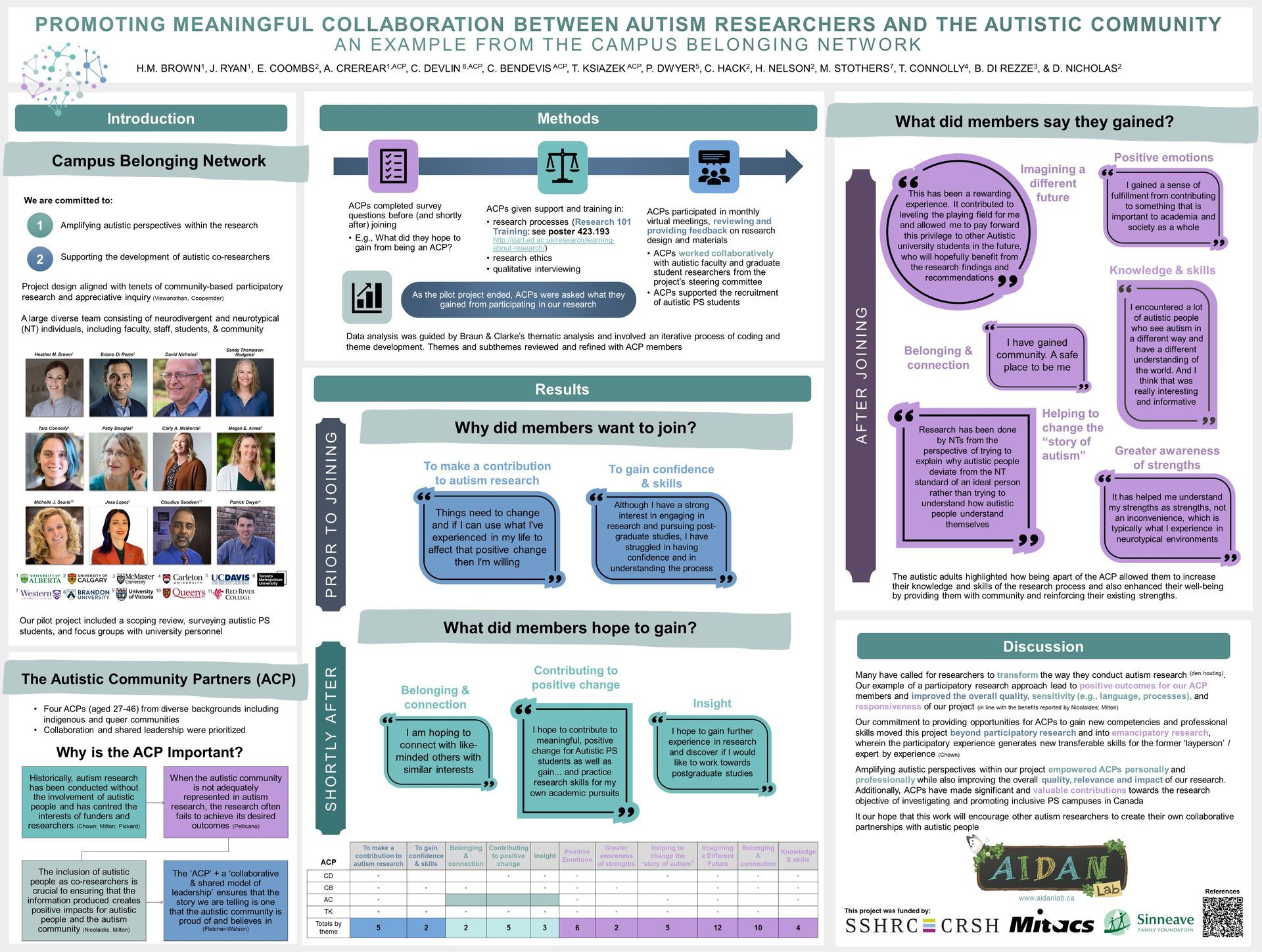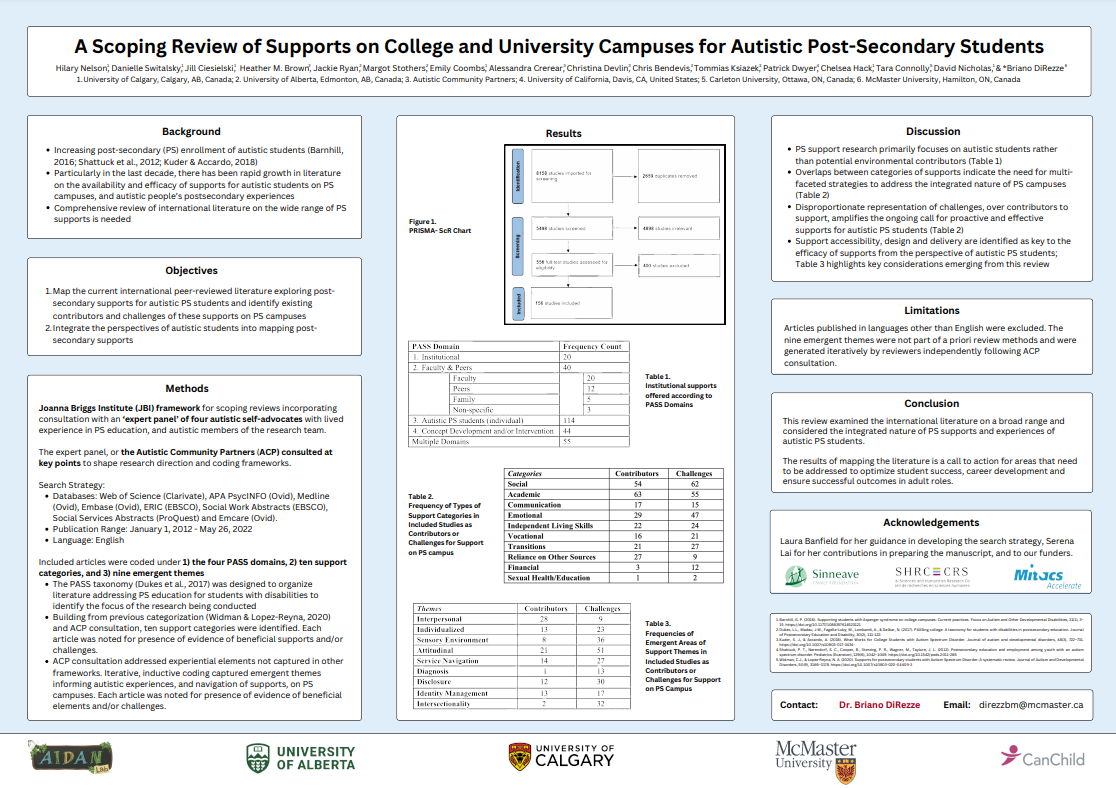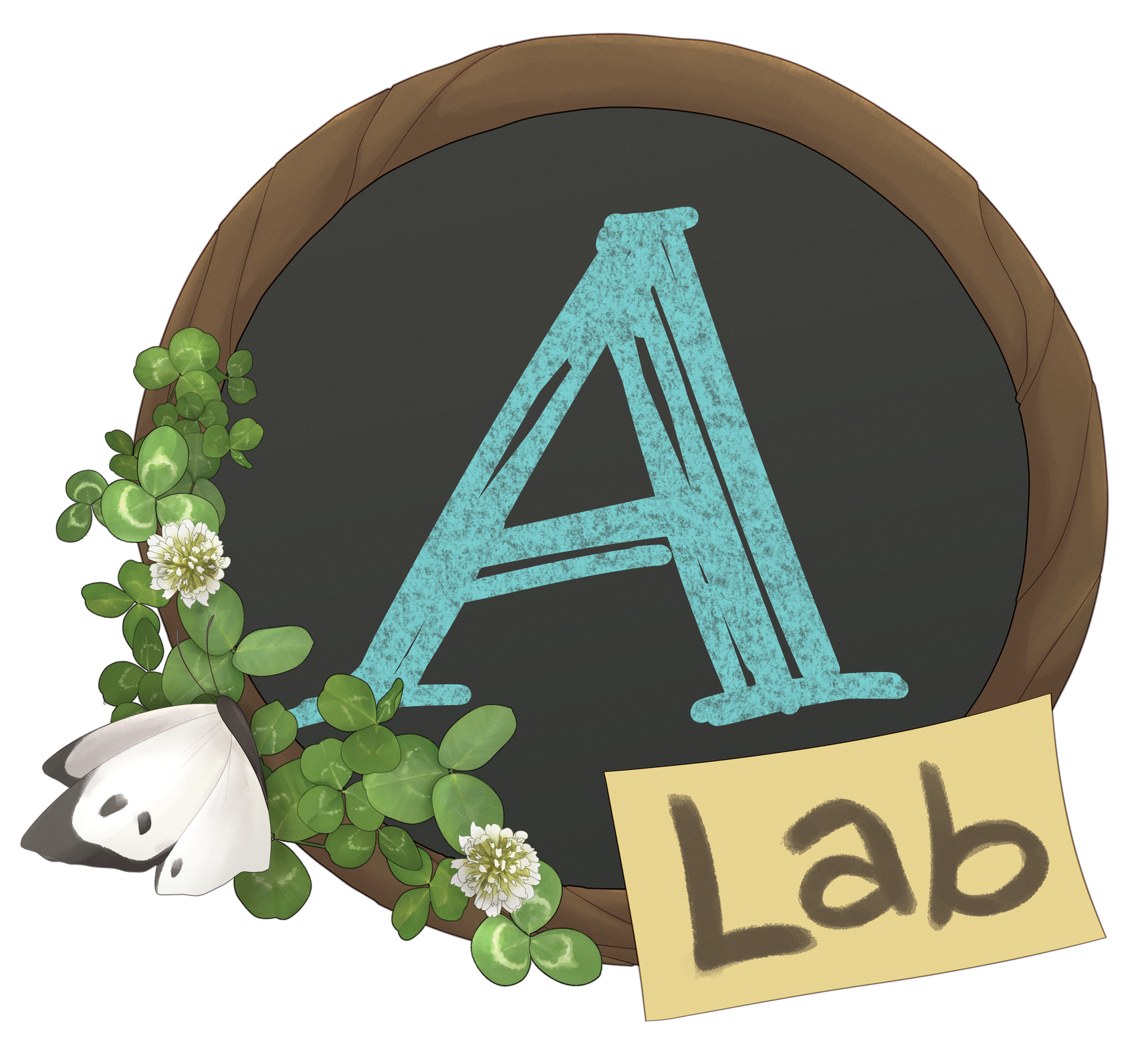Campus Belonging
Advancing Post-Secondary (PS) Opportunities for Autistic Students
Impact and Output
Please visit this page for frequent updates on the awesome work being produced by the Campus Belonging team!
Manuscripts
Nelson et al., in press A scoping review of evidence-based supports on college and university campuses for autistic post-secondary students
Introduction: Navigating campus life and attaining credentials is often difficult for autistic adults, despite their considerable contributions to postsecondary campuses (Nachman et al., 2021). It has been reported that up to 80% of autistic postsecondary students do not graduate (Vanbergeijk et al., 2008); other research has reported limited implementation of autism-specific supports (Ames et al., 2022). Given a demand to better address the principles of equity, diversity, inclusion, and accessibility in higher education (Smith et al., 2021; Craig et al., 2010), research into both barriers and promising practices to support autistic students on postsecondary campuses has advanced, with an emerging trend of exploring autism-specific supports. Recognition of the need for equitable access to postsecondary education for autistic students has been coupled with a growing understanding that autistics require support in a variety of non-academic domains.
Objective: The objective of this scoping review is to identify, map, and characterize literature that enumerates and describes supports for autistic postsecondary students.
Methods: Our scoping review was limited to peer-reviewed research published between 2012 and 2022, in these databases: Web of Science, PsycINFO, Medline, EMBASE, ERIC, Social Work Abstracts, Social Services Abstracts, and EMCARE. Aligned to Joanna Briggs Institute methodology for scoping reviews (Peters et al., 2022), we mapped existing approaches to creating accessible campuses across eight key domains of the PASS Taxonomy (Duke et al., 2017; Table 1) and a systematic review by Widman and Lopez-Reyna (2020; Table 2), in consultation with Autistic Community Partners (ACP). Four ACPs made up an expert panel of autistic individuals with postsecondary experience who acted as co-researchers, guiding the development of the review. Data extraction was completed by three independent graduate students using the data extraction tool developed by the authors (DS, HN, JC, BDR).
Results: The review included 154 articles from the US, Australia, Canada, Netherlands, Israel, Sweden, Ireland, Norway, Nigeria, Slovenia, and Belgium. Table 1 presents frequency counts for studies describing supports for autistic students as either successes or barriers in eight domains seen previously (Duke et al., 2017; Widman & Lopez-Reyna, 2020). Support and barrier categories with the three highest frequency counts were, Academic, Social, and Emotional. Success counts outnumbered barriers only in the Academic category, consistent with evidence that autistic PS students are academically well-prepared (Flegenheimer & Scherf, 2022). Social was almost evenly split, and Emotional, including counseling, generated higher counts for barriers than successes. Other categories emerged and were inductively grouped (Table 2) and from these, only Interpersonal and Participatory Action Process had predominantly success counts. Areas where barriers were predominant occurred within Sensory environments, Individualized supports, Attitude, Diagnosis, Disclosure, Intersectionality, Finance, Sexual Health/Education, and Service Navigation.
Conclusions:
This review is the first to summarize both areas that have been researched and under-studied domains in the literature that contributes to successes and barriers for autistic students on postsecondary campuses. Mapping the literature in known and emerging categories indicated that broad categories of support are experienced variably by autistic students. Findings provide multiple avenues for future research.
Posters + Presentations
Brown et al., 2023 International Society for Autism Research (INSAR) Poster Presentation - 'Promoting meaningful collaboration between autism researchers and the autistic community: An example from the Campus Belonging Network'

Nelson et al., 2023 International Society for Autism Research (INSAR) Poster Presentation - 'A scoping review of supports on college and university campuses for Autistic postsecondary students'

The University of Alberta is located in ᐊᒥᐢᑿᒌᐚᐢᑲᐦᐃᑲᐣ (Amiskwacîwâskahikan) on Treaty 6 territory. We recognize and respect the history, languages, and cultures of the First Nations, Métis, Inuit, and all First Peoples of Canada, whose presence continues to enrich our institution.
© 2022 AIDAN Lab. All rights reserved. Use of this site constitutes acceptance of our User Agreement, Privacy Policy, Cookie Statement, and compliance with The Personal Information Protection Act (PIPA) and Personal Information Protection and Electronic Documents Act (PIPEDA) . The material on this site may not be reproduced, distributed, transmitted, cached or otherwise used, except with the prior written permission of the AIDAN Lab.
